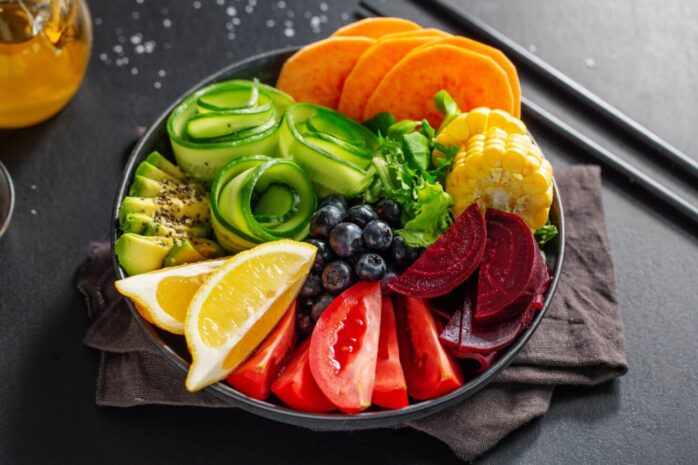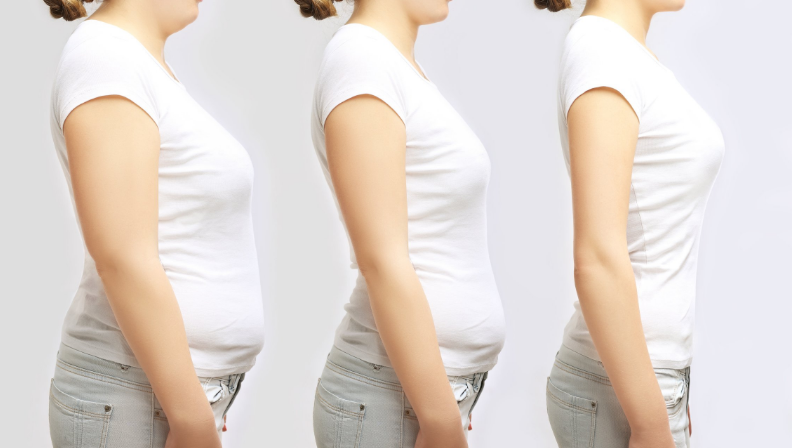
After 9 months of anticipation, your bundle of joy is finally here. You may not have to follow some of the same dietary restrictions as when you were pregnant, but nutrition is still an important factor. Your nutritional needs could also vary considerably, depending on if you are nursing or recovering from a c-section.
While the basics of healthy eating often apply, post-natal women have special circumstances that must be considered.
Health During the Fourth Trimester
All the hormone and physical changes that develop during childbirth don’t just disappear after delivery. In fact, the first 3 months after delivery are sometimes referred to as the fourth trimester, as your body will change significantly during this period.
During this time, many mothers will be simultaneously caring for a newborn and recovering from their own procedures. They may also start breastfeeding, all while getting less sleep. A balanced and nutritious diet is key to staying healthy during this joyful, but challenging time.

Common Nutrition Challenges After Birth
Growing another human is tiring work, and many women enter the post-partum period deficient in nutrients. During pregnancy, the placenta and baby absorbed nutrients from the mother’s diet. If any vitamins or minerals were missing, then the placenta took what it could from the mother’s body.
As a result, many women enter the post-partum period deficient in protein, iron, and vitamin D. Furthermore, some nutrients that are already depleted during pregnancy, like choline, are needed for breastfeeding. Nutritional deficiencies can slow recovery and make nursing more difficult.
A healthy diet combined with postnatal vitamins can help women replenish their depleted nutrient stores.
Postpartum and Weight Loss
Weight issues are also a common problem facing new mothers. On average, women gain up to 35 pounds during pregnancy. While most women lose about half of this weight within the first six weeks of postpartum, some women actually gain weight.
Additionally, typical weight loss tactics, such as cutting calories, are not suitable while breastfeeding. Exercise can also be challenging right after childbirth, as the body needs time to heal. During this period, it is important to eat foods that are nutritionally dense and avoid “empty calories”.

Postpartum Diet Tips
The best postpartum diet considers all of the nutritional needs of the mother and the baby. Firstly, women who are breastfeeding should expect to consume at least 500 additional calories per day. These extra calories should come from whole foods, such as vegetables, fruits, and lean meats.
Consume Healthy Proteins
Most women enter the post-partum period deficient in protein. To counter this, experts advise eating a minimum of 75 grams of protein-rich foods per day. This includes eggs, lentils, and quinoa. While fish can be a great protein source, women should select the varieties they eat very carefully.
The mercury found in some species, such as tuna and mackerel can be passed to an infant through breastfeeding and disrupt neural development. Women who need to get their protein from fish should stick to a maximum of two servings of low-mercury varieties, such as salmon, haddock, and tilapia per week.

Stock Up on Carbs
Although cutting out carbohydrates is common advice for weight loss, this is not advisable for postpartum women. The body needs carbohydrates to produce serotonin, a neurotransmitter that plays a key role in mental health.
Carbohydrate-dense foods contain the protein, tryptophan, which helps the body create serotonin. Rather than avoiding carbohydrates altogether, postpartum women should incorporate complex carbs into their diet. This includes brown rice, whole wheat varieties of cereal, bread and pasta, and nutritious grains.
Simple carbohydrates, usually found in refined bread and pastries, are less nutritious and can be safely cut out from the postnatal diet.
Cooking Methods Matter
While choosing the right foods is important, how these ingredients are cooked also matters. Even the healthiest vegetables can quickly lose their nutritional value if they are coated and fried in oil. Boiling vegetables can also leech out essential nutrients.
Baking and broiling are the best way to preserve nutritional value without adding unnecessary fats and calories. Raw vegetables are also a good choice.

However, women must thoroughly clean all fruits and vegetables before eating. Consuming pesticides and other residues can cause health problems. Purchasing organic varieties of so-called “dirty” vegetables such as peaches, apples, and spinach, can lower the risk of pesticide exposure.











